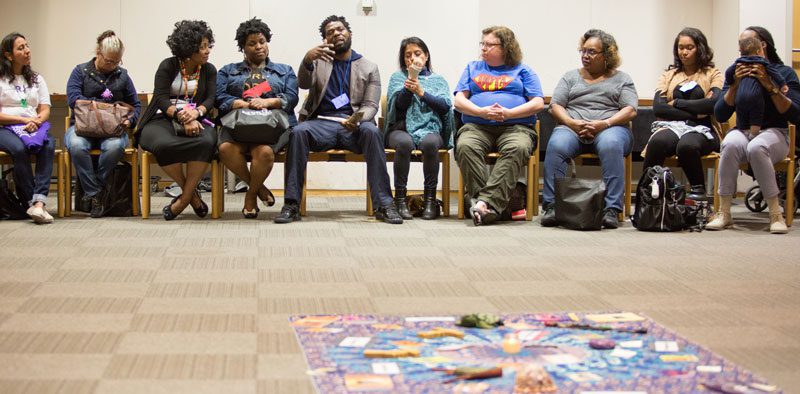“It was love.”
That’s how planning committee member Josh Easter summed up last weekend’s Restorative Community Practices Conference—three days of peace circles, panel discussions, workshops, meals, music, and conversation.
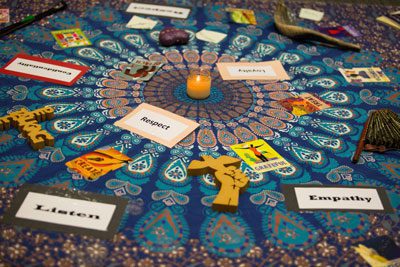
The October 4-6 conference drew national experts, local activists and teachers, families with children, community leaders, and passionate individuals. Together, we took a deep dive into how restorative practices can be applied within families, schools, and communities.
“For me, the most meaningful parts of the weekend were the organic connections and relationships that restorative practices foster,” said Easter, who mentors Chicago-area youth and families both as an AmeriCorps Affiliate and with A Greater Good Foundation.
“We went into the weekend as strangers, and I now have a new network of people I consider allies and friends who are supporting the work we’re doing in the community,” he said. “The work that we do to create positive change in the community has come with so many personal sacrifices, but events such as this are so reassuring that we are on the right path.”
‘This is what community looks like’
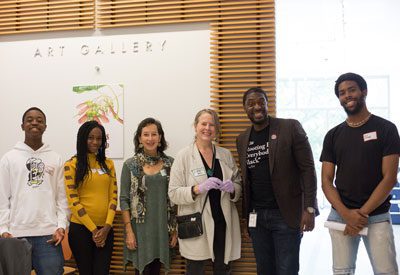
Restorative principles include bringing empathy to a situation, seeking first to understand, and helping people without doing further harm. Whether they’re applied in a criminal justice, school, family, or broader community setting, restorative practices take a group perspective, says the library’s Teen Services Coordinator Stephen Jackson.
So it was fitting that, to build upon the library’s first restorative justice conference in 2018, Jackson assembled a committee of dedicated community members to plan and broaden the scope for the 2019 conference.
“This is what community looks like,” said planning committee member Susan Lucci, who facilitates restorative circles in the Oak Park area—what she calls “a soulful, mindful practice of listening from the heart, offering nonjudgmental compassion and genuine support.”
‘It’s who you are’
The conference kicked off with a Friday evening peace circle facilitated by Pamela Purdie, Peace Circle Trainer at Precious Blood Ministry of Reconciliation, and circle discussions continued through Sunday.
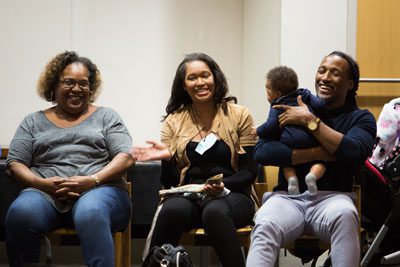
Lucci said the highlight for her “was the degree of vulnerability brought by so many powerful storytellers. We sat in several large circles, where each of us was invited to take a risky deep dive into something that matters. Sharing wasn’t easy, but it was authentic and moved many of us to tears.”
Cody Cotton, another conference organizer, panel speaker, and participant who also works with A Greater Good Foundation, said that the conference “allowed my family to see that restorative practices is a way of life. It’s not just something you do, but who you are.”
‘I have so much yet to learn’
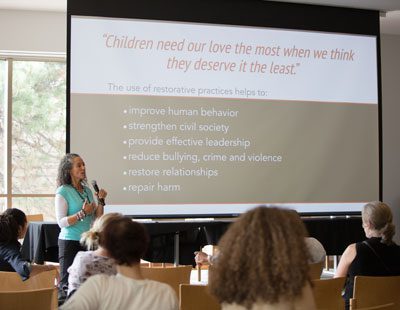
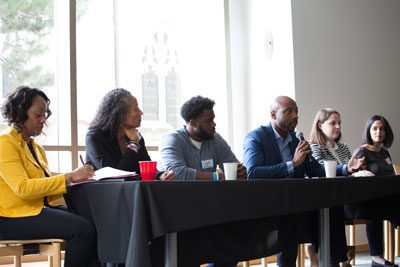
The weekend’s presenters and panel discussion participants included Illinois state senators Don Harmon and Kimberly Lightford; Megan Traficano, Director of Youth Services at Oak Park Township; Gina Harris, Climate and Culture Coach at Julian Middle School; Oak Park Public Library Executive Director David J. Seleb; and LeVar J. Ammons, Executive Director of Equity and Student Success at Oak Park and River Forest High School.
“I was honored to be in the space and contribute to the restorative justice work being done for the community,” Ammons said.
Saturday’s keynote speaker was Anita Wadhwa, Restorative Justice Coordinator at Yes Prep Northbrook High School in Houston and author of the book Restorative Justice in Urban Schools: Disrupting the School-to-Prison Pipeline.
“I learned a lot this weekend and was particularly inspired by the young people who are doing this work,” Wadhwa said. “What stuck out to me was the pain that the young people have experienced and the racial injustice they continue to witness in Oak Park, despite its reputation as a progressive city.”
Rachelle Zola, who recently moved to Chicago, came to the conference because “I have something to learn, and I have something to give,” she said. “I have a pretty big open heart, but it has expanded. I learned that I have so much yet to learn.”

